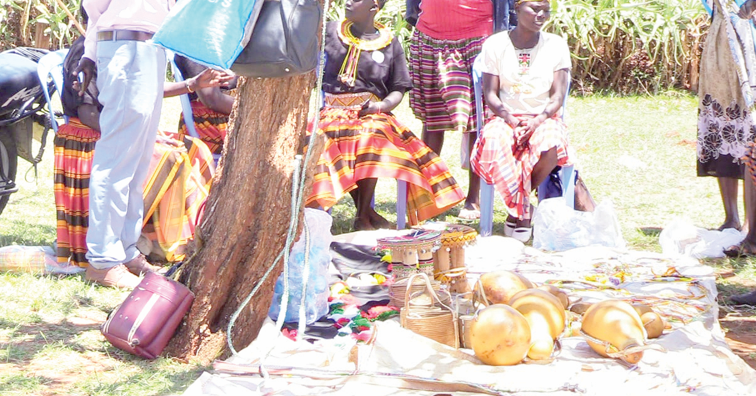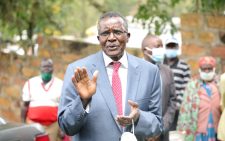Pokot women step up to boost life in their region

Indigenous women in pastoral areas often face a lot of challenges in their quest to seek opportunities that can set them on an equal trajectory with men.
Inequality between women and men was widely apparent among pastoralist communities of the North Rift but a new initiative in the region is changing fortunes for the rural women after being empowered economically, acquired skills, opportunities and tools to get themselves out of extreme poverty.
In West Pokot county, where People Daily found out, women who were dependent on their husbands for everything now have a reason to smile as they have turned into entrepreneurs engaging in beadwork and tree planting initiatives as alternative means of survival.
The women who had, until recently, been vulnerable have now made significant strides, beating the poverty trap by accessing resources and uplifting their living standards.
They have formed groups and are using beads to make decorative products as an income generating activity to fight high poverty levels and as a means of peace building in the restive region.
Bead making has been a traditional activity in the Pokot community with no significant economic benefits but it is now ending poverty and promoting sustainable economic growth among women in the region.
Monica Silinyang’, a rural woman from Batei area says they have for many years been in darkness but have now been empowered after enduring suffering for a long time.
Silinyang’ said many women in the region were used to being subjected to Female Genital Mutilation (FGM) and married off and burdened by household chores.
“I didn’t get an opportunity to complete school. I only got to class seven and got married off. I have now been empowered. We do savings now and use the money for fees and medication,” said Silinyang’.
“We also take loans as capital to start businesses. We swap money from our savings from phones and also attended exposure tours,” she added.
She recalls how men didn’t value them as they were not allowed to own property or wealth and not allowed to participate in decision making. “Right now, we work together with our men. Men used to go to sit under trees or look after livestock while we provide food and do other chores,” said Silinyang’.
According to Village Enterprise Organisation Country Director Leah Okero, they support more than 1,000 households every year with 80 per cent being women in West Pokot County.
“We train them in financial, business skills, and give them grants to help them start businesses. We are happy that women are now able to eat a balanced diet. Their children are going to school and their girls are not being subjected to harmful cultural practices like FGM and early marriages. Many young girls have been rescued and are now in school,” said the official.
She said that her organisation was committed to the fight against retrogressive cultural practices and promoting women in leadership positions. “We want women to be employed by the National and County Governments and access education and do business for them to be self-reliant. Women do a lot of chores at home. We want to hear their voices,” explained Okero.
Peris Chepanga’t, an official from Deutsche Stiftung Weltbevölkerung (DSW) organisation said women are playing a key role in uplifting the society.
“We’ve seen a lot of improvement when it comes to women’s engagement. They are able to do things by themselves and also improve in decision making, social, financial and political spaces,” said Chepang’at.
She however acknowledged that there are still some obstacles in the region that derail efforts and capacity and potential of women in achieving their potential. “FGM is still prevalent in this region at 44 per cent according to Kenya Demographic Health report (KDHS),2022 report,” explained the official.
According to Mary Kimani, the Country Director for International Tree Foundation (ITF) which operates in the region, women under Perur Rays of Hope organisation are taking care of the environment to counter the effects of climate change, increase landscape cover and restoration by planting 50,000 trees by April next year. “A Pokot woman has shown resilience and she has shown the capacity to learn and to embrace knowledge and take hold of her environment,” said Kimani.
She said the women are also engaged in kitchen gardens, giving gender-based solutions and enterprises, raising nurseries as income generating activities while taking care of girls by empowering them with life skills.









